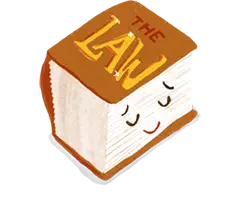Topic
Māori affairs
This page contains different parts of laws about Māori affairs.

Important laws about Māori affairs
Conservation Act 1987
Following the Treaty of Waitangi principles in New Zealand's conservation law
4: Act to give effect to Treaty of Waitangi
Conservation Act 1987
Who can be on the New Zealand Conservation Authority team
6D: Membership
Conservation Act 1987
Who can be on a Conservation Board to help protect New Zealand's environment?
6P: Membership of Conservation Boards
Conservation Act 1987
People chosen to protect Lakes Manapouri, Monowai, and Te Anau and advise the Minister.
6X: Guardians of Lakes Manapouri, Monowai, and Te Anau
Conservation Act 1987
Māori fishing rights stay the same, even with new laws
26ZH: Maori fishing rights unaffected by this Part
Conservation Act 1987
Agreement to protect special land and its Maori values.
27A: Nga Whenua Rahui kawenata
Conservation Act 1987
Rules to protect Māori fishing rights in South Island rivers and lakes
48B: Special regulations relating to South Island freshwater fisheries
New Zealand Geographic Board (Ngā Pou Taunaha o Aotearoa) Act 2008
Respecting the Treaty of Waitangi in New Zealand place names
6: Treaty of Waitangi (Te Tiriti o Waitangi)
Local Government Official Information and Meetings Act 1987
When councils can keep information secret for good reasons, like protecting people or businesses.
7: Other reasons for withholding official information
Telecommunications Act 2001
What examples mean in this law: they help explain rules, but rules are what count.
155C: Status of examples
Local Government (Rating) Act 2002
This law helps local councils do their job and explains how rates work so it's fair for everyone.
3: Purpose
More laws about Māori affairs
About this project
What is this project?
This project is an experiment to take difficult language, and make it easier to read and understand for everyone.
How do we do this?
What's our process for taking the law and turning it into plain language?
Why is the law written like it is?
Laws are often hard to read. They use a lot of words and language we don't usually use when we talk.
Should we use AI for this?
What are the good and bad sides of using AI?
Is this information the actual law?
We hope that this information will help people understand New Zealand laws. But we think that it's important you talk to someone who understands the law well if you have questions or are worried about something.
You can talk to Community Law or Citizen's Advice Bureau about your rights.
Remember that AI can make mistakes, and just reading the law isn't enough to understand how it could be used in court.
You can talk to Community Law or Citizen's Advice Bureau about your rights.
Remember that AI can make mistakes, and just reading the law isn't enough to understand how it could be used in court.




